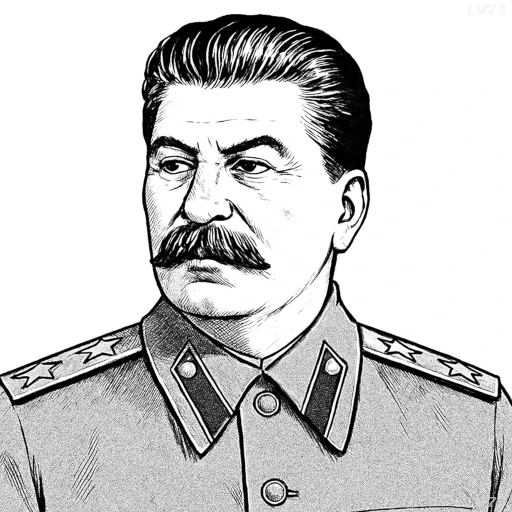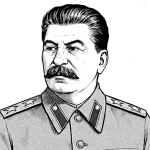“Mankind is divided into rich and poor, into property owners and exploited; and to abstract oneself from this fundamental division; and from the antagonism between poor and rich means abstracting oneself from fundamental facts.”

- December 18, 1878 – March 5, 1953
- Born in Georgia
- Politician
table of contents
Quote
“Mankind is divided into rich and poor, into property owners and exploited; and to abstract oneself from this fundamental division; and from the antagonism between poor and rich means abstracting oneself from fundamental facts.”
Explanation
This quote reflects Stalin’s view of class struggle and the inherent antagonism between the bourgeoisie (property owners) and the proletariat (working class). Stalin believed that the fundamental division in society was rooted in economic disparity, where the rich, who controlled the means of production, exploited the poor. According to Stalin, any attempt to ignore or abstract oneself from this division was a refusal to face the reality of social conflict. The Soviet regime, under Stalin’s leadership, aimed to resolve this division through revolutionary change, which included the overthrow of the capitalist system and the establishment of a socialist state. This perspective was grounded in Marxist ideology, which viewed history as a struggle between the oppressed and the oppressors.
Stalin’s regime, while it promised to represent the working class, often resorted to authoritarian tactics to maintain power. The ideological justification behind this class divide was central to Stalin’s policies, including forced collectivization, the suppression of private property, and the persecution of perceived capitalist sympathizers. Stalin’s government presented itself as the protector of the working class, but in practice, it often acted in ways that deepened inequalities and led to widespread suffering, including famines and purges. The division between rich and poor under Stalin became not just a theoretical concern but a political and moral justification for his harsh policies.
Looking at this quote in today’s world, it speaks to the continuing relevance of class divisions in modern societies. While the specific political systems may have evolved, the struggle between wealth and poverty remains a central issue in global politics. The quote reminds us of the importance of acknowledging economic inequality and addressing the ways in which it shapes social, political, and moral outcomes. As we aim for a more just and peaceful world, understanding these fundamental divisions and their implications is crucial in ensuring that efforts for social change are rooted in the real, lived experiences of both the rich and the poor.
Would you like to share your impressions or related stories about this quote in the comments section?


